Humans
Sign up for our newsletter
We summarize the week's scientific breakthroughs every Thursday.
-
 Health & Medicine
Health & MedicineDaily low-dose aspirin is not a panacea for the elderly
Healthy elderly adults don’t benefit from a daily dose of aspirin, according to results from a large-scale clinical trial.
-
 Science & Society
Science & SocietyReaders focus on fake news, neutrinos, and more
Readers pondered how to effectively combat fake news, questioned the result of a clinical trial, and wanted to know more about neutrinos.
-
 Tech
TechA sensor inspired by an African thumb piano could root out bogus medicines
An inexpensive, user-friendly device that’s based on an mbira could help identify counterfeit and contaminated medications.
-
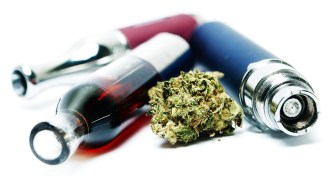 Health & Medicine
Health & MedicineHere’s how many U.S. kids are vaping marijuana
A new study suggests that nearly 1 in 11 middle and high school students in the United States has vaped marijuana, raising concerns about addiction.
-
 Neuroscience
NeuroscienceBrain features may reveal if placebo pills could treat chronic pain
Researchers narrow in on how to identify people who find placebos effective for treating persistent pain.
-
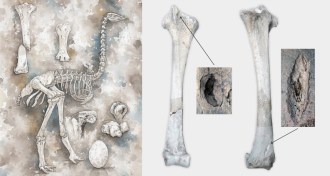 Anthropology
AnthropologyButchered bird bones put humans in Madagascar 10,500 years ago
Humans reached the island near Africa 6,000 years earlier than thought, raising questions about how its megafauna went extinct.
By Bruce Bower -
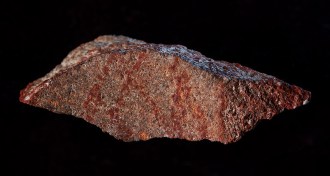 Archaeology
ArchaeologyThis South African cave stone may bear the world’s oldest drawing
The Stone Age line design could have held special meaning for its makers, a new study finds.
By Bruce Bower -
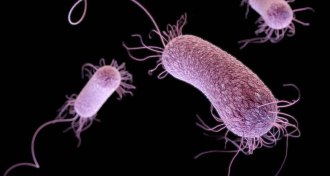 Chemistry
ChemistryA new antibiotic uses sneaky tactics to kill drug-resistant superbugs
Scientists have developed a molecule that kills off bacteria that are resistant to existing antibiotics.
-
 Health & Medicine
Health & MedicineMarijuana use among pregnant women is rising, and so are concerns
Pediatricians are urging caution as data show more pregnant women are using marijuana. More research is urgently needed on the drug’s effects during pregnancy.
-
 Health & Medicine
Health & Medicine50 years ago, a pessimistic view for heart transplants
Surgeon Christiaan Barnard performed the first successful human-to-human heart transplant in 1967. In 1968, he predicted that patients would survive five years at best. Fortunately, he was wrong.
-
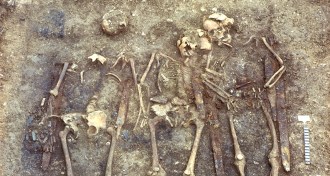 Genetics
GeneticsGerman skeletons hint that medieval warrior groups recruited from afar
Graveyard finds may come from an ancient European warrior household with political pull.
By Bruce Bower -
 Health & Medicine
Health & MedicineTeens born from assisted pregnancies may have higher blood pressure
Kids born from reproductive technologies such as in vitro fertilization are susceptible to high blood pressure as adolescents, a small study finds.